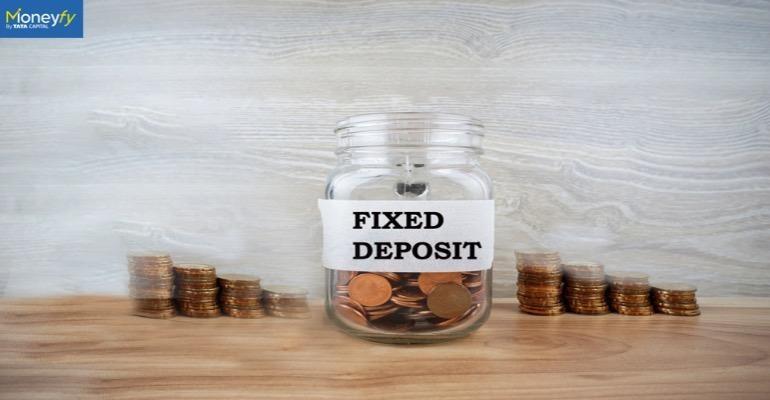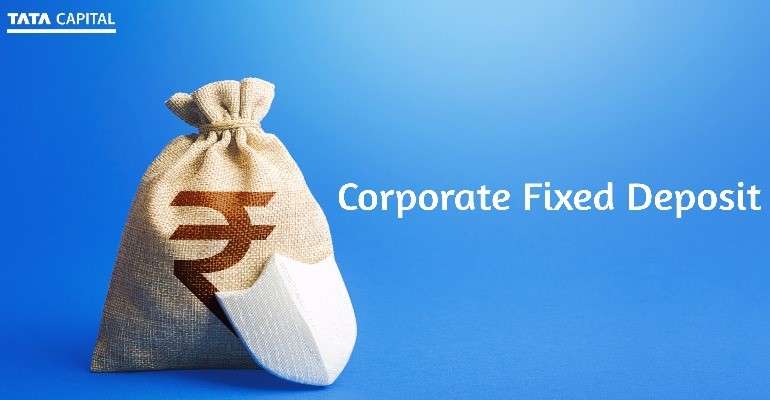This product offering is currently unavailable. We will be back soon. Till then please explore our other products.
Fixed deposits have always been a top investment option for conservative investors seeking guaranteed returns. But did you know that you can fetch relatively better interest rates with corporate fixed deposits? That’s right! Apart from banks, NBFCs and other companies also offer excellent FD schemes that promise you decent returns at maximum flexibility.
However, corporate FDs carry a slightly higher risk than regular FDs. But, you can still reap the benefits of corporate FDs and avoid risks if you conduct proper research before investing.
So, how to choose Corporate FDs for your portfolio? To help investors make an informed decision, agencies like CRISIL have devised a rating system for corporate fixed deposits.
In this article, we will explain what corporate fixed deposits are, how they are rated, and how to evaluate your portfolio with respect to risks and returns.
A corporate fixed deposit (also called corporate FD or CFD) is a term deposit offered by companies and NBFCs for a specific tenure at a fixed interest rate. Similar to bank FDs, corporate FDs also provide assured returns at maturity.
You can invest your funds in a wide range of company FDs depending on the rate of interest, tenure, and institution as per your financial needs.
CRISIL is a leading global analytics company. It is India’s foremost provider of ratings, data, research, analytics, and solutions. CRISIL also rates FD programs of corporates on a 20-point rating scale (CRISIL AAA to CRISIL D). Note that CRISIL also appends ‘+’ (plus) or ‘-’ (minus) modifiers for ratings from ‘CCR AA’ to ‘CCR C’ to reflect comparative strength within that category.
Here is a list of ratings given by CRISIL, from highest to lowest.
If the rating of the CFD is ‘CCR AAA,’ this means that the NBFC has duly honoured its debt obligations in the past.
Ratings Below AAA is relatively lower, however corporate FDs with lower rating provide higher interest to compensate to Risk. Diversifying the portfolio into various risk categories will help you optimize your portrfolio as per your risk tolerance.
Look for Corporate FDs with rating of AA+ & above to ensure you yield higher interest benefits with low risk. Higher rated corporate fixed depositsare known to have a stable financial history, making them a safer option. Besides, they offer higher rates than regular FD investments.
Are AAA rated CFDsthe same as regular bank deposits? Not quite. One key difference is that while bank deposist are insured up to a sum of Rs. 5 lakh, corporate FDs are not.
But this shouldn’t stop you from investing in this highly lucrative instrument. Consider the risk factors by performing a thorough background check of the company issuing the fixed deposit. Let us explore how to make an informed investment decision in the next section.
Before investing your hard-earned money in a corporate FD, keep the following parameters in mind:
Here are some things you should keep in mind before investing in CFDs:
Ready to invest in a high-yielding and rated corporate fixed deposit? Begin your goal-based investment journey with Tata Capital’s Moneyfy app! Browse through a wide range of investment instruments to fit your financial goals – from mutual funds to SIPs to fixed deposits and more. What’s more, you can research and compare the best company fixed depositsand make the most of your funds right from the comfort of your home! Download the app today!



Fd Vs Mutual Fund: Key Differences Between Mutual Fund & Fixed Deposit

Fixed Deposit(FD) Vs Public Provident Fund(PPF): Which Is Better?



What Are CFDs? How Are They Rated? Risk Vs Return Evaluation Of CFDs


FD (Fixed Deposit) vs RD (Recurring Deposit): Which Is Better?

Corporate Fixed Deposit Vs. Fixed Deposit – Which is Better?